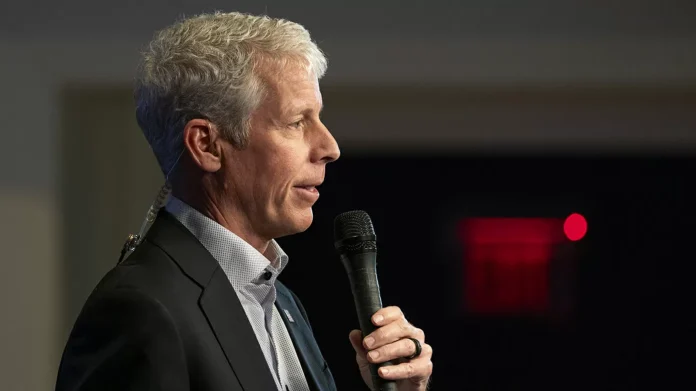The Trump administration has recently announced the cancellation of nearly $4 billion in awards for emerging energy technologies that were issued under the Biden administration. This decision has sparked controversy and raised concerns about the future of clean energy initiatives in the United States.
In a press release issued on Friday, the administration described the canceled funding as mostly carbon capture projects and decarbonization initiatives. These projects were aimed at reducing planet-warming emissions from fossil fuel plants and promoting the use of cleaner, renewable energy sources. The decision to cancel these awards has been met with disappointment and criticism from environmentalists and clean energy advocates.
The canceled funding was part of the Biden administration’s efforts to combat climate change and transition to a more sustainable energy future. It was a crucial step towards fulfilling the United States’ commitment to the Paris Climate Agreement and reducing its carbon footprint. The decision to cancel these awards not only undermines these efforts but also sends a negative message to the rest of the world about the country’s commitment to tackling the global climate crisis.
The canceled projects included a wide range of initiatives, from developing new technologies for carbon capture and storage to promoting the use of renewable energy sources such as solar and wind power. These projects were selected through a rigorous and competitive process, and their cancellation has left many innovators and researchers disappointed and demotivated.
The Trump administration’s decision to cancel these awards is a major setback for the clean energy sector in the United States. It not only hinders the progress of ongoing projects but also discourages future investments and innovations in this field. This move is particularly concerning as the world is facing a climate emergency, and the need for clean energy solutions has never been more urgent.
The cancellation of these awards also raises questions about the administration’s priorities and its stance on climate change. While the rest of the world is moving towards a greener and more sustainable future, the United States seems to be taking a step back. This decision sends a message that the current administration is not committed to addressing the global climate crisis and is willing to sacrifice the environment for short-term economic gains.
Moreover, the cancellation of these awards also has significant economic implications. The clean energy sector has been one of the fastest-growing industries in the United States, creating millions of jobs and contributing significantly to the country’s economy. By canceling these awards, the administration is not only hindering the progress of clean energy projects but also jeopardizing the livelihoods of thousands of workers in this sector.
The decision to cancel these awards is also a blow to the United States’ leadership in clean energy innovation. The country has been at the forefront of developing new technologies and solutions to combat climate change, and these canceled projects were a testament to its commitment to this cause. By canceling these awards, the administration is not only hindering the progress of these projects but also sending a message that the United States is no longer a leader in clean energy innovation.
In conclusion, the Trump administration’s decision to cancel nearly $4 billion in awards for emerging energy technologies is a major setback for the United States’ efforts to combat climate change and transition to a more sustainable energy future. It not only undermines the country’s commitment to addressing the global climate crisis but also has significant economic and environmental implications. It is crucial for the administration to reconsider this decision and prioritize the development of clean energy solutions for the betterment of our planet and future generations.

